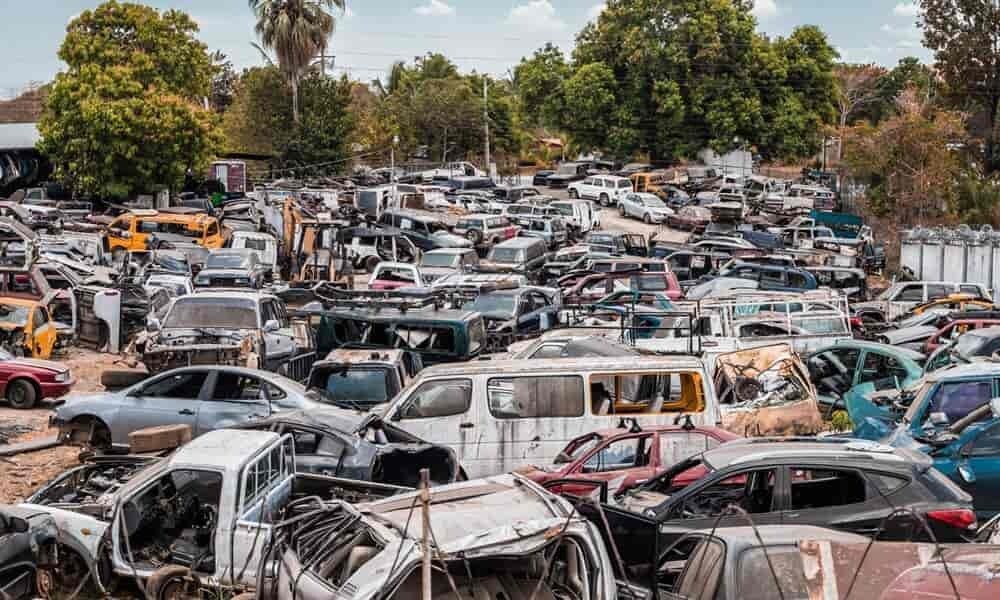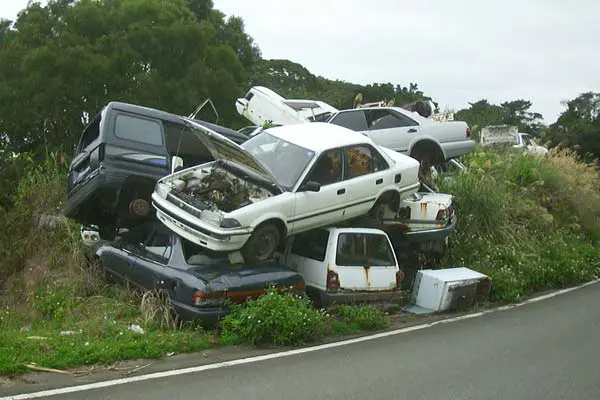
Austin’s dedication to environmental stewardship is evident in its ambitious goal to divert 90% of waste from landfills by 2040. A significant contributor to this initiative is the recycling of end-of-life vehicles, which helps minimize waste, reduce landfill overflow, conserve valuable materials, lower emissions, and promote long-term sustainable practices within the community and surrounding areas.
Environmental Benefits of Car Recycling
Recycling vehicles plays a crucial role in conserving natural resources and reducing environmental degradation. Companies such as Austin metal and iron, which specialize in recycling, help reclaim valuable materials like steel, aluminum, and copper from end-of-life vehicles, significantly reducing the need for new raw material extraction. This process preserves natural habitats and decreases energy consumption associated with mining and manufacturing. For instance, recycling steel uses about 74% less energy than producing it from raw materials. Moreover, proper recycling ensures that hazardous substances like oils, coolants, and batteries are safely handled, preventing soil and water contamination. This proactive approach safeguards local ecosystems and contributes to a healthier environment for Austin residents.
Economic Advantages for the Austin Community
Beyond environmental benefits, car recycling brings strong economic value. It supplies cost-effective recycled metals to local industries and creates jobs across various roles, thus boosting the local economy and supporting community growth. Residents also stand to gain financially by selling their old vehicles to recycling facilities. Many centers offer competitive prices for end-of-life cars, providing individuals with an opportunity to earn while contributing to sustainability efforts and reducing clutter from unused or non-functional vehicles.

The Car Recycling Process
The journey of recycling a vehicle involves several meticulous steps to maximize material recovery and minimize waste:
- Dismantling: Usable parts such as engines, transmissions, and tires are carefully removed for resale or refurbishment.
- Fluid Removal: All hazardous fluids, including oil, coolant, and brake fluid, are safely extracted and disposed of or recycled appropriately. This step prevents contamination and ensures environmental compliance.
- Shredding and Sorting: The remaining car body is shredded, and materials are sorted into categories like ferrous and non-ferrous metals. These materials are then sent to manufacturers to produce new products, reducing demand for raw materials.
This comprehensive process ensures that a large portion of each vehicle is repurposed, supporting Austin’s zero-waste goals. It also strengthens the circular economy by reducing landfill use and promoting responsible resource management.
Local Support for Car Recycling Initiatives
Austin’s commitment to sustainability is reflected in various local initiatives aimed at promoting recycling and waste reduction. The city’s Resource Recovery department offers waste assessments to businesses, identifying opportunities to enhance recycling efforts and reduce overall waste.
Local recycling centers play a vital role in supporting the city’s sustainability efforts by offering accessible services for both residents and businesses. They handle materials from end-of-life vehicles responsibly, ensure compliance with environmental standards, and help educate the public on proper disposal practices and their environmental impact.
Reducing Automotive Waste through Smart Material Recovery
Modern vehicle recycling isn’t just about scrapping cars and maximizing what can be reused. With advanced sorting and processing technologies, recycling centers are now able to recover more components than ever before. From catalytic converters to wiring harnesses, nearly every part has potential value. This level of precision reduces automotive waste and keeps reusable materials in circulation, thus supporting both sustainability goals and resource efficiency.
Car recycling is vital to Austin’s strategy to reduce waste and promote sustainability. Through environmental conservation, economic benefits, and community engagement, this practice exemplifies how responsible actions can lead to a greener, more sustainable future for all. For example, companies like Austin metal and iron process end-of-life vehicles to recover reusable materials, helping reduce landfill waste, conserve energy, and support the circular economy through efficient metal recycling operations. This ongoing commitment strengthens the city’s reputation as a leader in environmentally conscious urban development.







